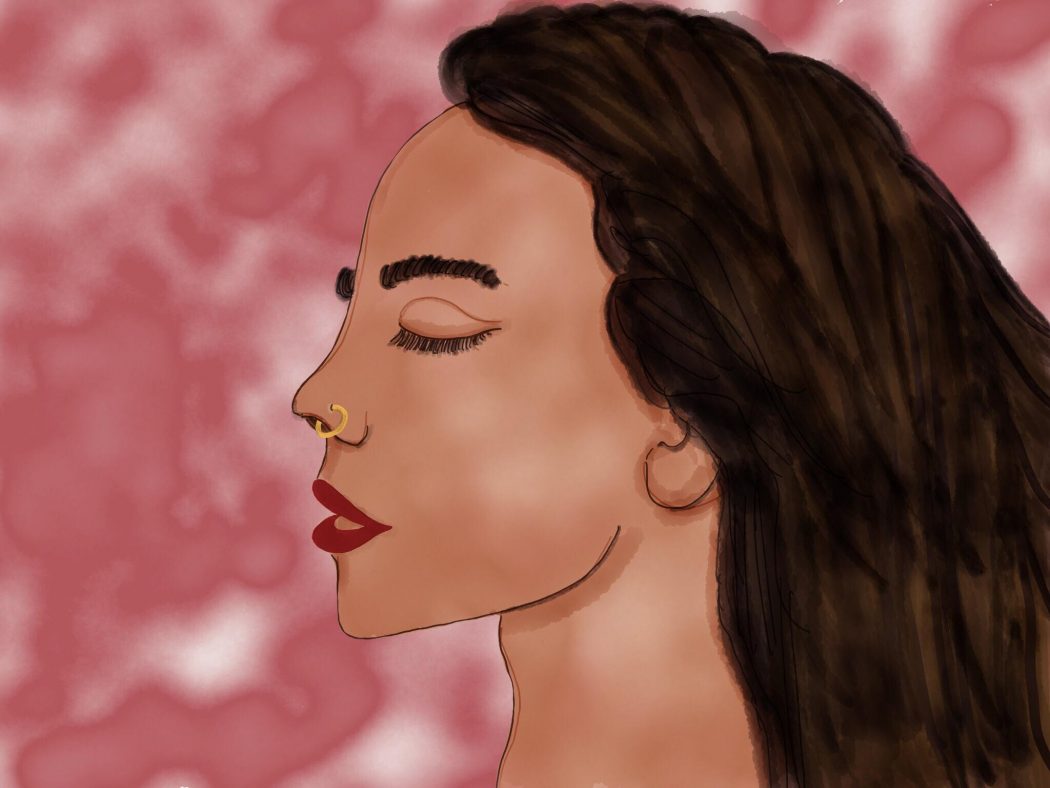Navigating Differences in a Multicultural World
Names have been changed to ensure anonymity.
Born and raised in Montreal, Shakti is the daughter of Indian immigrants. She recently married her long-time boyfriend, Uttam, who was born in Bangladesh, but also raised in Montreal. As is custom in her community, Shakti moved in with her in-laws after the wedding. During this period, she was confronted with a set of expectations as a new bride as well as the difficulties of adapting to customs and values that were not her own. Now living with her husband away from her in-laws’ home, she sat down with The Bull & Bear to talk about the bride’s experience in marriage.
Bull & Bear (B&B): After your wedding, you went to live with your in-laws. Is this the expected course of action for new brides in your community?
Shakti (S): Traditionally, yes. As a daughter-in-law, you live with your in-laws and your duty is to serve them. When I got married, my mother-in-law said, “I’m so lucky I have a girl like Shakti, she will handle the whole house now.” Obviously I didn’t do it all, it would be impossible…But on the weekends, I did. I got up in the morning and I would give them breakfast, make them their tea… I would cook six curries, I would sweep, mop, and then my day would begin.
I got up in the morning and I would give them breakfast, make them their tea… I would cook six curries, I would sweep, mop, and then my day would begin.
B&B: How long did you live there for?
S: A year and a half. And I cried every night for the first six months.
B&B: What were some things you encountered while living with your in-laws?
S: My mother-in-law has these ideas that, once you’re a bride, you can’t be doing this, you have to be wearing that, and so on. For example, she wanted me to get my nose pierced because apparently brides are supposed to breathe gold on their husband. My mum doesn’t have her nose pierced, by the way. It’s not a thing that is done in our family. But, my [mother-in-law] thinks now that I’m married, I have to adopt their lifestyle, their culture. I told her, “If you keep asking me to change, it makes my transition into living with you much more difficult. You need to let me be me.”
My mother-in-law used to tell Uttam, “You need to control your wife more.” And if Uttam [were] in the kitchen, she would say, “Get out. You’re a man, you don’t belong here.” Honestly, the one thing I’ve learnt after marriage is to lie. Those who know me, know that I have a no-lying policy. I hate to lie. But, I lie like crazy now [to] my in-laws…I have no choice.
My mother-in-law used to tell Uttam, “You need to control your wife more.”
B&B: What do you mean by that?
S: For example, yesterday, I was working from home and my mother-in-law called me around lunchtime. She asked me whether I would be coming over later and I said that I [had] an appointment, but I really didn’t. I lied because I didn’t want to go [to my in-laws’ house]. My father-in-law is still not talking to us, and I don’t like going over because of the tension.
B&B: Your father-in-law is not speaking to either of you?
S: No. Because we moved out.
B&B: How long has it been now since you moved out?
S: Three months.
B&B: So, how has your relationship with your in-laws changed?
S: Our friends found out that we moved out, so I guess it got out in the community. And people started asking [my husband]’s father, “Is it true they moved out?” So, that hurt his ego.
We would go over regularly, and he wouldn’t talk to us. We would send food every other day: no response. He didn’t wish my husband a happy birthday. He didn’t call me on my birthday to wish me a happy birthday. Uttam would call his dad regularly, his dad wouldn’t pick up.
And that’s the day I stepped in. I told [my husband], “We need to stop. We can’t keep feeding his ego. We can’t keep throwing our self-respect away and going back to him. Even a dog is smart enough to know not to go where there is no love. At this point, your father is not a father.”
B&B: Was there a reaction from the community?
S: Yes, of course, everything was wrong with the whole concept. People in the community [were] asking my father-in-law, “Is it true? What happened?” The problem with our community is that, as soon as families don’t live together, it’s always the daughter-in-law’s fault. What happened? The daughter-in-law couldn’t do it, she couldn’t live with them, she couldn’t keep them together. She broke the family.
The daughter-in-law couldn’t do it, she couldn’t live with them, she couldn’t keep them together. She broke the family.
B&B: Would you say yours is a common experience among new brides? Or is your case abnormal?
S: Mine is extreme. My sister experienced something similar, but my best friend is with her mother-in-law and it’s really easy. Another friend is with her mother-in-law and it’s not that bad. What my [in-laws] are doing with me happens with a lot of women that come from back home, because the expectations are that you’re from back home and you should be behaving [a certain] way.
But my mother-in-law always forgets that I was born and raised here and my mentality is completely different. She still doesn’t get it. She still thinks I’m a horrible girl for moving out. And it makes me feel really bad — it really hurts me — because I worked hard to build a good reputation. [And] now I have a bad reputation.
B&B: You said there are different expectations for women coming from India or Bangladesh and for women in the community who were raised here. Would you be able to elaborate a little on that?
S: A big problem is that a lot of people have a son who was raised here, they take him back home to India or Bangladesh [to] have an arranged marriage, and then bring the girl [back] … When they get her married, they tell her, “We’ll get you educated. You can continue school here.” But once here, they tell her, “You can’t go to school now. Now you have to have a baby.” The girls have no family here. They can’t run off; they can’t do anything. They can barely even speak the language. So they just become slaves to their family, and boys think that’s okay. They think it’s her job to serve the family because they were raised with that mentality.
B&B: Do you believe that what your in-laws expect of you results from a kind of ‘clash of values’?
S: Yes, I think so. For example, you know how women wear the red dot? Well, she keeps telling me to wear that. I tell her that I’ll wear it to ‘brown’ events, but I won’t wear it to work. She says that it’s [my] symbol. But I say, “Uttam has no symbol. Why is it me who has the symbol?” She says it’s just the rules, it’s how it is. But, I don’t care how it is; this is Canada. My mum doesn’t even wear the dot to work.
I told [my mother-in-law], “You know what’s funny? I was born and raised here, and I married Uttam and when I go to the temple everyone’s watching what I wear: Whether I look like a bride or not, if I have my jewelry, if I have my red dot… But nobody, not once, does somebody complain that Uttam is wearing pants and not an Indian outfit. But me, they’re watching. Uttam is the one born in Bangladesh, shouldn’t it be he that everyone is watching, who should be keeping his tradition? Why is it that all eyes are on me? Why is it always on the women? But [my mother-in-law] thinks that’s just the way it is.
B&B: Despite everything it entailed, is there something that sticks out to you from this whole experience that you cherish?
S: Even after everything I went through with my in-laws, my parents always remind me that I did my best. I have the best father in the world, and my mum is very strong. I didn’t value my mum until I got married and would open up to her about all these problems. She is the one who taught me to speak up for myself.
B&B: I am struck by the strength of character that it must have taken to live this. I don’t know many people who could put aside their ego in the way you did under such circumstances.
S: I don’t know many people who would do what I did either, I am not going to lie. I really struggled, I was really unhappy and I did this. But girls from India are doing this all the time. It’s expected of them and they just do it. Now, I’m happier. My husband makes me really happy. At the end of the day, what keeps me strong is the support of my family, but I know that a lot of girls who come from India don’t have that.


